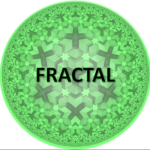Partners

IKERLAN is a Spanish private not-for-profit Technology Centre created in 1974, is a technological R&D
actor within Mondragon Corporation. IKERLAN is a point of reference for innovation, dedicated to
advanced technology transfer to industry and comprehensive product development (from concept to
implementation) for a wide variety of domains: transportation (railway and vertical), automation, industrial,
medical, energy, etc. Its mission is to improve companies’ competitiveness, through the application of
technological knowledge to develop innovative products and implementing customised systems in design
and manufacturing processes. It has a staff of more than 300 qualified researchers and engineers, with
experience in interdisciplinary work such as electronics & ICT, energy and power electronics, Microsystems
and advanced manufacturing).

Barcelona Supercomputing Center (www.bsc.es), established in 2005, serves as the National Supercomputing Facility in Spain. The Center hosts MareNostrum, one of the most powerful supercomputers in Europe. The mission of the BSC is to research, develop and manage information technologies in order to facilitate scientific progress. The BSC not only strives to become a first-class research center in supercomputing, but also in scientific fields that demand high-performance computing resources such as the Life and Earth Sciences.
BSC fosters multidisciplinary scientific collaboration and innovation and currently has over 507 staff from 41 countries. BSC has been extremely active in technology transfer fostering the exchange of knowledge and expertise between academia and private enterprise through the licensing of technologies, the collaboration in projects with industry and the creation of spin-offs. BSC has created a total of 4 spin-offs and two more are on its way for 2018. To date, BSC counts with a portfolio of more than 80 software, most of them released under Open-source and has facilitated a significant number of patents (https://www.bsc.es/tech-transfer/portfolio/patents-portfolio) and only in the last years has filed 5 new applications.

Universitat Politècnica de València (www.upv.es) is a public university with four campus sites, over 35,000 students and 2,600 faculty members and research staff. It consists of 44 Departments, most of them in engineering areas, and is the top University in Spain regarding patent production. Contributions to this project will come from the Parallel Architectures (GAP) group of the UPV.
GAP (http://ww.gap.upv.es) has 26-year research expertise in different aspects of system architecture, especially on interconnection networks. Currently, the group is formed by twenty-nine researchers. Participant members of the GAP group have lead research projects focused on FPGA and on-chip interconnects, providing also virtualization and partitioning support in embedded multicore systems. The members involved in FRACTAL have participated in several processor design initiatives and developed a multicore architecture (from the basic processor to the networks and memory hierarchy) in Verilog and ready for being used in the FPGA-based prototyping solution. Members of the team have recognized participation and contributions in top-ranked conferences for Computer Architecture and Design Automation, being TPC member of ISCA, HPCA, SuperComputing conference, as well as Associate Editor of IEEE journals like TC, CAL, and TPDS.

Multinational Spanish leading engineering consultancy firm, with over 50 years of expertise providing high quality technical services in the field of engineering, architecture and consultancy on infrastructure, urban development and the environment. PROI is a subsidiary of Indra group, Spain’s number one consultancy and technology multinational and one of the leaders in Europe and Latin America.
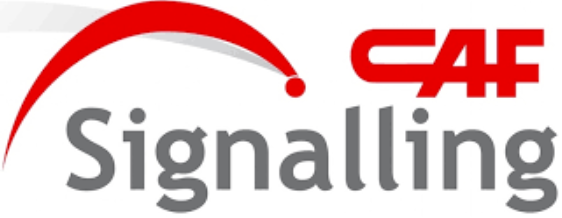
CAF Signalling (www.cafsignalling.com) is a company (technological subsidiary of CAF Group) that designs and provides Integral Signalling Solutions. It is focused on the design, development, manufacturing, supply and maintenance of Rail Signalling Systems, thus providing integrated signalling and automatic train operation solutions for infrastructures and rolling stock, particularly in the area of critical safety systems.
CAF signalling is currently working in the Smart Control and Safety System (Communication Based Train Control CBTC), which will mean major technological progress reflected in an increase in safety and services offered on the line, along with efficient driving, optimised signalling and energy-saving measures. As part of this project development, CAF signalling is already marketing the ATO (Automatic Train Operation) solution which provides a GoA2 (Grade of Automation) based on ERTMS Technical Specifications for Interoperability.
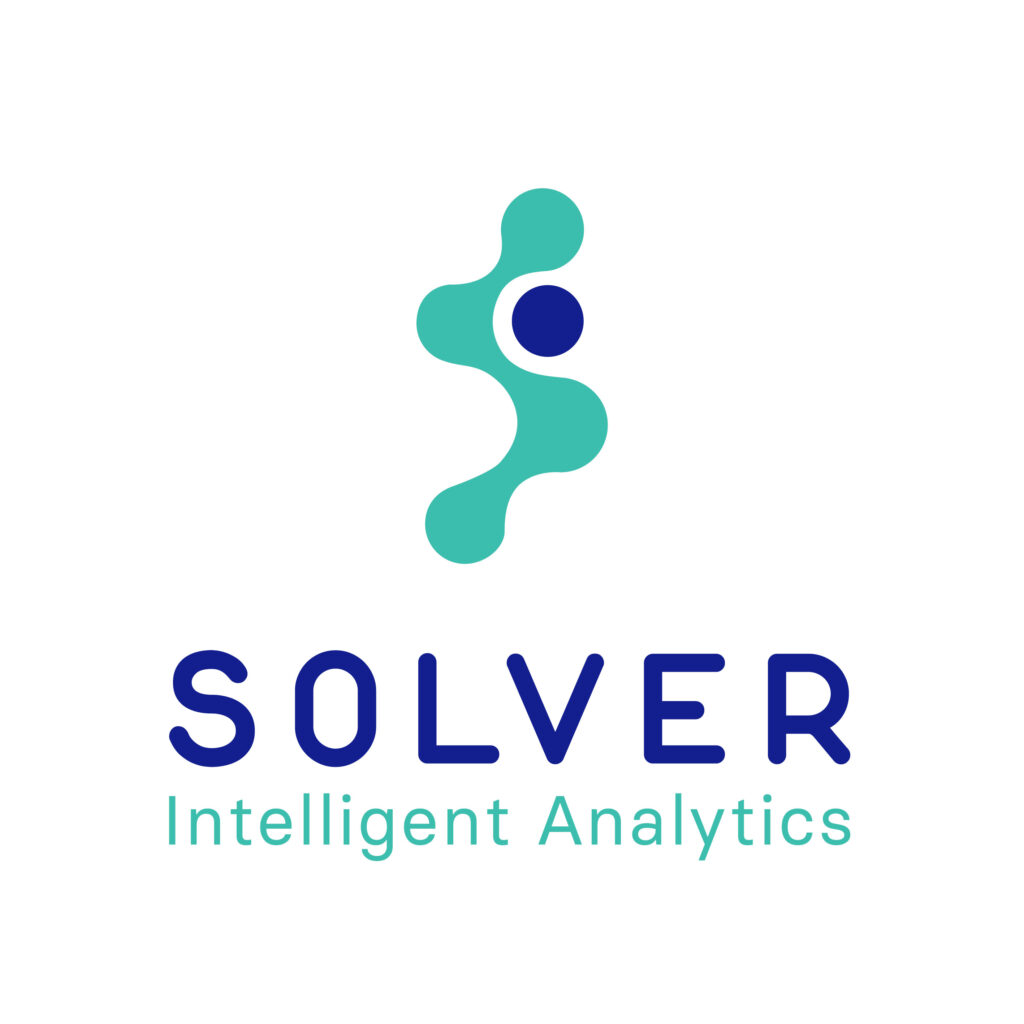
At Solver Intelligent Analytics (www.iasolver.es) we turn data into value. In short, we are a technology company that is dedicated to making predictive models based on Artificial Intelligence tools. Millions of data are continuously being generated around the world, but we don’t know its actual value and potential. Yet, the future of companies depends on the projection of this data. That is why our objective is to reduce business risks and associated uncertainties.
At Solver Intelligent Analytics we introduce variables to approximate reality. For this, our algorithms are always learning with the help of such technologies such as Machine Learning, Natural Language Processing, Computer Vision and Deep Learning. Our goal is to predict future scenarios to companies with very high accuracy rates and speed, in order to improve business decision-making process.

Zylk.net is an ICT consulting firm specialized in offering advanced digital and analytical transformation services with corporate open-source solutions and with offices in Bilbao and Madrid. Zylk has two lines of specialization: on the one hand, Big Data solutions and advanced analytics with, Cloudera, and Pentaho. And on the other hand, portal solutions with Liferay, document management with Alfresco, eLearning with Valamis digital signature with Sinadura. The company works with clients in telecommunications, energy, Industry 4.0, finance, public administration, education and food among others.

LKS group is one of the main references in the Spanish professional services sector. It has around 700 people on its staff and generates an annual turnover of more than 50 million. It is part of the Consulting and Engineering Division of MONDRAGON, the leading Basque business group and the seventh in Spain. It provides services in the fields of management and technology consulting, legal advisory, architecture and engineering in urban planning, construction and infrastructure, promotion, real estate consulting and design.
Given its wide range of services and global solutions, it operates in almost all sectors, such as aeronautical or retail in the private sector, or health or administration in the public sector, through organisations like the International Development Bank, the World Bank, the European Union and governments of different countries.
LKS was established in 1991 as the result of the experience gained in the Business Division of Caja Laboral for over 30 years. Its development has been marked by continuous expansion and the search for new services and markets, with sustained momentum in generating jobs and wealth and a philosophy based on human and social values. LKS Group consists of several cooperatives and more than twenty investee companies.
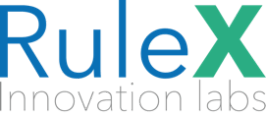
Rulex Innovation Labs Srl (www.rulex.it) is an Italian company that operates in the field of machine learning, researching and developing applications for advanced analytics and pattern recognition.
In the past years, Rulex Innovation Labs developed a software called Rulex Analytics which enables the so-called Explainable Artificial Intelligence (XAI). Rulex provides AI tools and turn-key applications based on proprietary machine learning algorithms, which automatically produce predictive model in the form of if-then rules, rather than black-box mathematic solving functions.
The commercialization of the software is carried out by the American company Rulex Inc (www.rulex.ai), with head-quarters in Boston MA (USA) for whom Rulex Innovation Labs provides Research & Development activities.
Rulex Innovation Labs is a SME with a team of about 25 highly motivated and extraordinarily skilled people.

Aitek S.p.A. is a privately owned company established in 1986 and based in Genoa, Italy. It develops and uses innovative technologies to solve multidisciplinary problems within industry and services. It designs intelligent systems for transportation, safety and security, and develop software applications based on state- of-the–art digital technologies. It employs 41 people and 6 partners, most of whom are electronic engineers and Information Technology specialists. In more than 30 years of activity, Aitek has reached the technological leadership in the creation of systems for toll collection, digital video surveillance and video analytics over IP (more than 50,000 cameras installed) and platforms for Digital Signage and video communication (over 3000 monitors installed for the distribution of advertising, new and multimedia content).
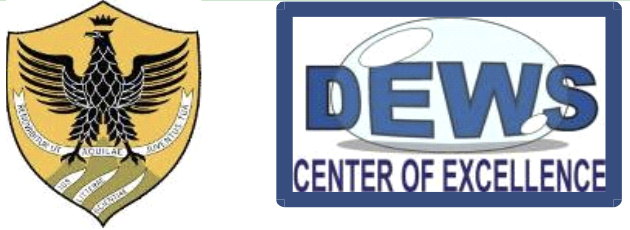
The University of L’Aquila is a competitive research and teaching institution in Italy, whose foundation dates back to the Middle Age (1596). The University has seven departments and two centers of excellence (CETEMPS, DEWS) and offers a broad variety of programs in engineering and applied sciences. DEWS (Design methodologies for Embedded controllers, Wireless interconnect and System-on-chip) started its operations in 2001 after the Ministry of Scientific Research and University awarded grants for the formation of centers of excellence on a competitive basis. DEWS was among the very first organizations that proposed research on the use of networks of sensors, controllers and actuators to solve society scale problems such as health, disaster recovery, transportation systems, and education. DEWS promotes interdisciplinary cooperation among researchers to achieve its research objectives. In particular, DEWS researchers are active in networked embedded systems automatic control, analog and digital electronics, computer science and telecommunications. In this context, the Centre has been able to plan and manage projects of significant complexity as well as to spin-off an engineering company (WEST AQUILA, www.westaquila.com). DEWS has been a member of the HYCON Network of Excellence (Hybrid control: taming heterogeneity and complexity of networked embedded systems) and HYCON2 (Highly-complex and networked control systems) Network of Excellence.

MODIS CONSULTING SRL is the engineering and ICT company of The Adecco Group. Started in 2011 in the United States, with locations in France, UK, Belgium, Norway, Poland, Germany and Switzerland and Canada and, from 2016, in Italy. In Italy has branches in Milan, Turin, Bologna, Florence, Rome and Bari.
Modis works in R&D and innovation management throughout R&D laboratories and delivery centers in which are operating many high skilled consultants. Modis is specialized in turn key project development with more than 10,000 employees and a portfolio of services that ensure the highest quality standards with adoption of a Target Operating Model (TOM).
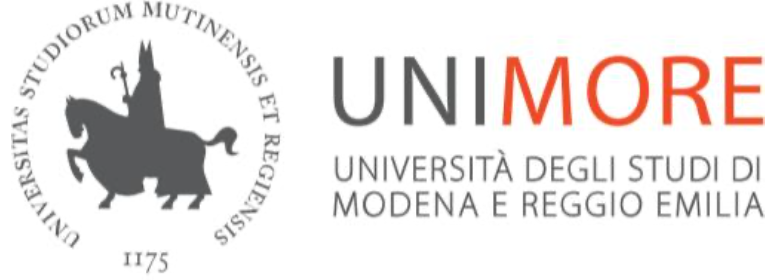
The group involved in the project is the High-Performance Real-Time Laboratory (HiPeRT Lab), belonging to the Department of Physics, Computer Science and Math. The group is composed of ten full-time researchers active in the fields of distributed algorithms, scheduling, computational complexity, real-time and multiprocessor systems. It actively participated and coordinated different national and international research projects, publishing several papers in major journals and conferences in the above cited fields. The group has been involved in several EU project and has multiple on-going collaborations with key companies in the automotive domains, where real-time requirements are crucial.
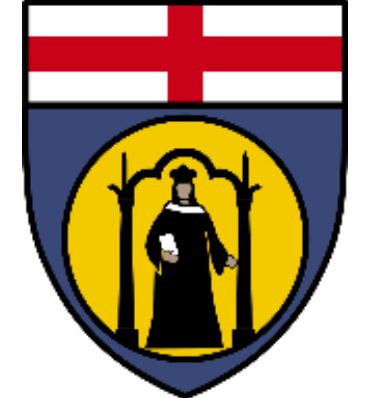
The members of the University of Genoa (UNIGE) participating to FRACTAL project are with the Department of Telecommunications, Electronic, Electrical and Naval Engineering (DITEN). DITEN has yearly financial statement of several millions Euros mainly coming from agreements with European agencies of research.
Currently DITEN is inserted in an international research community in the framework of several collaborations with well-known foreign universities and institutions. Research projects, managed within DITEN research groups and funded by the Italian Ministry of Education, University and Research (MIUR), by the National Research Council (CNR), by the Italian and European Space Agency (ASI and ESA), allowed to reach scientific results of international level, to develop innovative solutions and to cooperate with standardization institutes.

Ro Technology was born in January 2011. Today is an innovative company where you can meet the professionals with decades of experience and young talents who are eager to realize their academic experiences. Together we are sharing the enthusiasm for research and technological innovation. Ro Technology designs, develops and validates applications, tools, firmware and hardware components for several markets including Defense, Telco, Aerospace, Smart cities and Transportation. Such experience has been acquired through a well-established co-operation with most of the major Italian and European electronic industries, the development of products, and the participation in several research projects and other European or national organizations: since its inception participates in European research projects. 70% of its employees have extensive experience in teaming up with international research teams, industries and small companies. SMA headquarter and R&D located in Rome with business location in Milan. Relevant Technical skills&expertise provided in the consortium:
Embedded Systems, IoT/WSN, Communication protocols and FPGA design&development;
Safety, Security, asymmetric/symmetric cryptography, cryptography for resource-constrained
devices;
GIS based web applications;
Design of complex systems.

AVL List GmbH is the world’s largest privately-owned company for development, simulation and testing technology of powertrains (hybrid, combustion engines, transmission, electric drive, batteries and software) for passenger cars, trucks and large engines. AVL has about 3850 employees in Graz (Austria), and a global network of 45 representations and affiliates resulting in more than 9500 employees worldwide. AVL ́s Powertrain Engineering division activities are focused on the research, design and development of various powertrains in the view of low fuel consumption, low emission, low noise and improved drivability. The Advanced Simulation Technologies division develops and markets the simulation methods which are necessary for the powertrain development work. The Instrumentation and Test Systems division is an established manufacturer and provider of instruments and systems for powertrain and vehicle testing including combustion diagnostic sensors, optical systems as well as complete engine, powertrain and vehicle test beds. AVL supplies advanced development and testing solutions for conventional and hybrid vehicle components and systems like simulation platforms, development tools and system integration tools.
As engineering partner of leading OEMs throughout the world, AVL is constantly seeking for new capabilities and their exploitation. AVL is continuously carrying out research and technical development in the field of advanced automotive powertrains. AVL is active in many European interest groups like ARTEMIS Joint Undertaking (member of the Steering Board), ERTRAC, EARPA, EGVI, European Green Cars Initiative, EUCAR etc. Since Framework Program 3 AVL has been participating in more than 140 European RTD projects as partner and coordinator.

Siemens AG Österreich (SIEM) is part of Siemens AG, headquartered in Berlin and Munich, which is one of the world’s largest electrical engineering and electronics companies and holds leading market positions in its business areas Industry, Energy, and Healthcare. SIEM has more than 5000 employees working to develop and manufacture products, design and install complex systems and projects, and tailor a wide range of services for individual requirements. In fiscal year 2018, SIEM had a revenue of about 2.5 billion Euros. Also the global Corporate Technology organization has its footprint in Austria. The research group “Electronics Design” is a centre part of the global technology field “Electronics and Mechatronics” which is responsible for trend scouting, identification and development of technologies and processes for innovative electronics starting from the idea down to production.

VIRTUAL VEHICLE RESEARCH Center (VIF) has positioned itself as an independent, international platform for research and development in the automotive industry. It addresses the gap between academic research and the needs of industrial R&D departments. VIF strives for full vehicle analysis using a multi-disciplinary approach and conducts research in various areas, including mixed criticality multi-core systems, embedded control systems for (hybrid) electric vehicles, ADAS, and automated driving challenges, hardware/software co-simulation, model-based design and test, and virtual engineering.

The University of Siegen is a modern, high-profile university with an international orientation. It has approximately 18,600 students and 2,200 employees including a scientific staff of about 1,500. The University of Siegen offers an excellent environment for research and teaching with numerous inter- disciplinary research projects. The chair for Embedded System will participate in the FRACTAL project.
Research of the chair for Embedded Systems of University of Siegen is primarily dedicated to component- based embedded system architectures. The specific constraints that must be satisfied by embedded systems, such as timeliness, dependable operation in safety-relevant scenarios, short time-to-market and low cost in combination with the pressure to increase the functionality lead to an enormous growth in the complexity of the design at the system level. The research of the Division for Embedded Systems offers solutions for these challenging problems through significant advances in the area of system architectures, which provide the scientific and engineering foundation for the construction of embedded systems. The goals of the research are to discover design principles and to develop platform services that enable a component-based development of embedded systems in such a way that the ensuing systems can be built cost-effectively and exhibit key extra-functional properties (e.g. dependability, timeliness, composability, maintainability). Our investigations have resulted in contributions ranging from conceptual models of component-based system architectures, to model-based development solutions, to distributed algorithms for fault-tolerance and embedded operating system technologies for safety-relevant applications. The Division follows a balanced intermix between conceptual work with a sound theoretical basis and prototype implementations with experimental evaluations. Due to the interdisciplinary nature of embedded systems, we employ close cooperation with researchers from other fields (e.g. experts on control theory, specialists from automotive, avionic and industrial control domains).
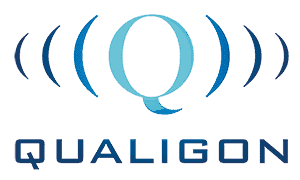
QUALIGON drives digital transformation for its customers covering solutions for quality assessments, testing and monitoring, business intelligence and indoor localisation.
Distributed and cloud-based SIM Switching Solutions;
Reporting, analytics and big data solutions;
Process and quality management; Test automation and continuous quality for apps and websites on real devices with Perfecto; Turnkey indoor localisation projects with BLE, WiFi, UWB technology;
SmartphonebasedmobileandWiFinetworktestsystem;Testcampaignsandoptimisationprojects;
Industrial safety and mobile worker systems, especially in the Ex-field.
Customers are mainly in the field of telecommunication, industry and retail.

The company BEEWEN GmbH & Co. KG is a competent developer and supplier for intralogistics total solutions in the field of warehouse storage. From the performance analysis, to the overall construction designed to your requirements, to the plant maintenance and training, with our many years of experience. Particular attention is paid to the efficiency of the system, which is achieved by means of weight-optimized design, state-of-the-art drive technology and sophisticated control technology.

Successful training and individual design developments for our customers are most important for us. Our team solves your problems: We know that with this requirement we have set the bar very high for ourselves. But that is our intention: The entire PLC2 team brings all of its knowledge and vast experience to your success. Success means that training and design projects are completed, precisely to the point and with the quality you want.
Furthermore, PLC2 offers products for high-performance data logging, high-speed data logging and network offloading and acceleration.
The company was founded in 1995 and is an official Xilinx ATP (Authorized Training Provider) and also part of the Xilinx Alliance Member programme.
We have established ourselves as the leading European training centre for Xilinx technologies and dynamic design services around FPGA and SoC technologies. We are also part of the early access programme for the Versal AI Engine. With our expertise and customer-oriented way of working, we continue to evolve in every aspect. In addition to the headquarter in Freiburg, there are now locations in Berlin, Frankfurt, Munich and Karlsruhe. In Endingen am Kaiserstuhl, by 2020, there will be a new company building.

THALES is a world leader for mission critical information systems, with activities in three core businesses: aerospace (with all major aircraft manufacturers as customers), defense, and security (including ground transportation solutions). It employs 80,000 people worldwide distributed in 68 countries. It provides its customers with all the key functions in the critical information loop, from detection and processing to transmission and distribution. Moreover, as a key player in security markets, THALES role is to protect peoples, countries, critical infrastructure and data. Thus, THALES works closely with its customer governments, cities, essential operators, companies and major national and international organizations to address their specific concerns and develop solutions that meet the needs of their stakeholders. THALES develops its strategic capabilities in component, software and system engineering and architectures through its R&T organization. Designing and developing the mission/safety-critical information systems that underpin the company’s leadership in aerospace, defense and security materials calls for comprehensive expertise in increasingly sophisticated technologies and the ability to integrate these technologies with large-scale software driven systems.
Thales SA is involved in the project through its corporate research center, the Thales Research & Technology center from Palaiseau (France) near Paris, located since 2006 on the campus of the Ecole Polytechnique engineering school. Thales Research & Technology (TRT) employs 240 full-time staff, and some 40 doctoral students and 50 external researchers are present on site. TRT has the mission to leverage technologies which are transverse to several domains, and to foster the innovation funnel in maturing, transferring and accompanying the technologies in THALES Business Units in charge of product lines and business. Research comes under following main headings: hardware systems and components research including connected soldier, surveillance systems, and security systems to protect people and property.

The Swiss Federal Institute of Technology (ETH Zurich) is a science and technology university with an outstanding research record. ETH Zurich is the study, research and work place of of almost 30,000 people from 120 nations. About 530 professors in 15 departments teach mainly in the engineering sciences and architecture, system-oriented sciences, mathematics and natural sciences areas and carry out research that is highly values worldwide.
The Department of Information Technology and Electrical Engineering (D-ITET) includes a dozen research laboratories with activities in the broad area of electrical engineering, ranging from integrated circuits to computer networks, from wireless communications to signal processing, and from control theory to power electronics. The faculty of D-ITET consists of more than 35 professors that supervise over 400 Ph.D. students. The department is firmly committed to both basic and applied research.
The Digital Circuits and Systems group led by Prof. Benini focuses on architecture, hardware and software design of energy-efficient computing systems. It has been developing the open-source Parallel Ultra Low Power (PULP) system since 2013 to develop novel architectures for a wide range of applications from IoT to HC domain.

Fabless semiconductor company specializing in radio frequency integrated circuit transceivers for cellular communications, and more recently in RF SoCs for cellular IoT standards such as EC-GSM-IoT, LTE CAT NB-IoT and LTE CAT M. On the RFIC side close to 100M ACP transceivers have been sold inside brand name mobile and smartphones, among which those of Samsung, Nokia, Sony-Ericsson, Motorola, HTC, Huawei, ZTE and, more recently, Xiaomi. ACP’s RF transceivers can also be found in commercial drones such as DJI’s Mavic and a variety of other CPE and IoT devices. On the SoC side, China Mobile has recently certified ACP’s NB-IoT / GPRS dual mode RF-SoC, which combines RF transceiver with digital modems and a multi-core RISC-V based processor. In addition to running the protocol stack as well as some of the physical layer software, the latter processor can also support some sensor interface and edge computing tasks by the user.
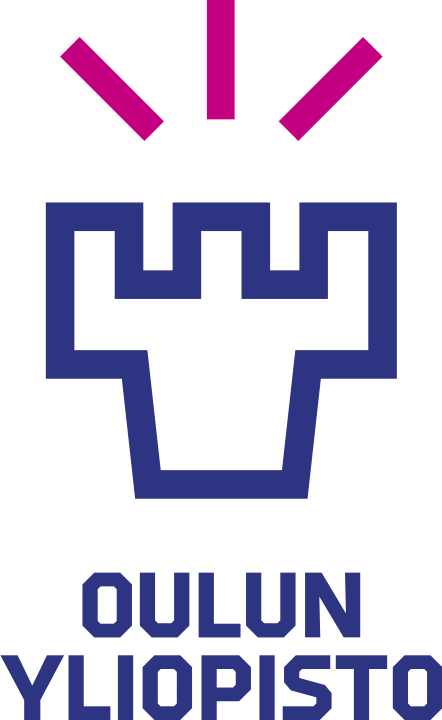
The University of Oulu (OULU) is among the largest universities in Finland with 16 000 students and 2800 staff members working in 8 faculties. OULU is an international research and innovation university engaged in multidisciplinary basic research and academic education. The university encompasses eight fields of study: Humanities, Education, Economics and Business, Science, Medicine, Dentistry, Health Sciences, and Technology. OULU is an associate member of the EIT Digital, EIT Raw Materials, BBI Bio-based Industries Consortium, among others, and has been involved in the EU R&D Framework programs since FP4, having participated in more than 250 EU projects and networks.
OULU commits two research units in the current proposal. The first research unit is the Center for Ubiquitous Computing -UBICOMP (http://ubicomp.oulu.fi/) at the Faculty of Information Technology and Electrical Engineering (ITEE). In Academy of Finland’s report “State of scientific research 2018,” the ITEE is ranked in scientific impact (Top-10 index) the 1st among the Finnish universities in the field of ICT and electrical engineering, with the UBICOMP Center reporting an annual budget of €2.6 million, of which 70% is externally competed. UBICOMP brings expertise on edge computing into this project, including software architectures and Artificial Intelligence at the edge. This research theme focuses on situation-aware, self- organizing and self-managing software platforms that use efficiently edge-computing infrastructures for 5G and beyond. The UBICOMP Center is involved, among others, in multiple Academy of Finland, Business Finland, FP7 and EU H2020 projects, featuring renowned national & international academic & non- academic institutions, and is involved in the cutting-edge 6Genesis Flagship Program.

Founded in September 2012, the company started out as a startup of five people, a group of experts from Nokia’s top product development team. With valuable access to the excellent competence in the Oulu region, a team of world-class engineers was assembled and the Haltian story began.
Starting as a product development and design company, one of our first projects was the Oura health ring. Soon after, we started to develop our own IoT products which later became the Thingsee IoT product family. We now have several large, global IoT customers and have delivered over a hundred product design projects to startup companies all over the world.

OFFC is an engineering office focusing on embeded Linux. During years we have work with major Mobile device manufactures integrating novel HW features to Linux kernel they have been using.
OFFC design and develop mobile and embedded systems. Linux, Android, QT and Nuttx based platforms are just some of our key areas of expertise. Other key technology areas are user interface technologies and wireless systems. OFFC has a strong background in coordinating complex multi-technology projects.
